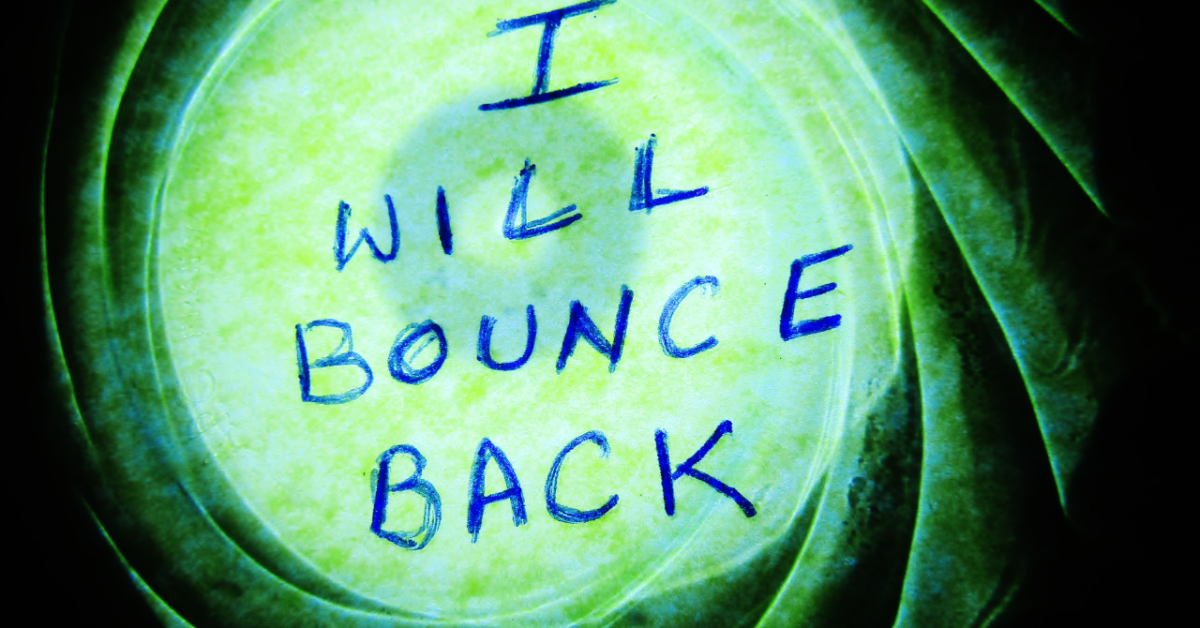Resiliência. Ou a Recusa de Desistirmos de Nós Próprios
1. Introduction/ Introdução
Maybe the title itself says everything and this blog post could just be it: resilience is the refusal of giving up on ourselves. Period.
Se calhar o título diz tudo e o blogue podia ficar-se por aí mesmo: resiliência é a recusa de desistirmos de nós próprios. Ponto.
When facing life’s challenges: we refuse to remain broken, at the mercy of heartbreak, disappointments, fatality, misfortune, or simply the consequences of dubious choices.
Perante os desafios da vida: recusamo-nos a ficar quebrados, à mercê do desgosto, da desilusão, da fatalidade, do infortúnio ou das consequências das escolhas duvidosas.
We suffer, we learn the lessons from the past mistakes and learn new skills for the future: we allow ourselves to want, we allow ourselves to feel we are good enough to be worthy of better life contexts. And we enter into Phoenix mode. And we rebirth from the ashes. And we reinvent ourselves.
Sofremos, aprendemos as lições dos erros do passado e as competências para o futuro: permitimo-nos querer, permitimo-nos sentir que somos suficientemente bons para merecer melhores contextos de vida. E entramos em modo Fénix. E renascemos das cinzas. E reinventamo-nos.
In materials, resilience is the mechanical property that the material has of absorbing energy when is submitted to a charge or pressure, and sufferer elastic deformation. And when such pressure no longer is applied, energy is liberated and the material returns to its initial state.
Nos materiais, a resiliência é uma propriedade mecânica que o material tem, de absorver energia, quando sujeito a uma carga ou pressão, e sofre uma deformação elástica. E quando deixar de ser exercida a pressão, a energia é libertada e o material retorna ao seu estado inicial.
In humans, the concept of resilience is not that much different: only that is not a “mechanical property”, is not necessarily innate: it can be learned and developed.
No humanos, o conceito de resiliência não difere assim tanto, com a diferença que não é “propriedade mecânica”, sequer intrínseca: pode ser aprendida e desenvolvida.
2. The Face of Resilience: How Does It Manifest / O Rosto da Resiliência: Como é Que Ela Se Manifesta?
It’s not as if resilience has a face: but there are some characteristics, facets, that an individual shows when in possession of resilience.
Não é como se a resiliência tivesse um rosto: mas há determinadas características, facetas, que um indivíduo mostra ter, quando tem resiliência.
But let’s start from the beginning: what is psychological resilience in an individual?
Mas começando pelo princípio: o que é a resiliência psicológica de um indivíduo?
Resilience is the psychological (mental and emotional) and behavioral ability to remain calm during crisis/chaos e move on from the event, without having long-term negative consequences.
Resiliência de um indivíduo é a sua capacidade psicológica (mental e emocional) e comportamental que lhes permite manter a calma durante crises/caos e prosseguir depois do incidente, sem ter colher daí consequências negativas de longo-prazo.
Resilient people have the ability to use their emotional skills to deal with and recover from life challenges (death of a relative, divorce, financial issues, etc).
Pessoas com resiliência têm a capacidade de utilizar as suas competências emocionais para lidar e recuperar dos desafios da vida (morte de um ente querido, divórcio problemas financeiros, etc.)
That doesn’t mean that resilient people experience less stress, anxiety, or grief. No: they just manage the struggles in a way, that sometimes even comes out of it even stronger than before.
Isso não quer dizer que as pessoas resilientes não sintam menos stress, ansiedade ou desgosto: apenas significa que lidam com os reveses de tal forma que até podem emergir das situações ainda mais fortes do que eram antes dos eventos ocorrerem.
2.1 The Benefits of Resilience / Os benefícios da Resiliência
Is not a super-power, but it's an awesome value.
Might be the difference between having more moments of joy. Or misery.
Might be the difference between perceiving life as a blessing. Or torture.
Better levels of resilience are related to:
Não é um super-poder, mas tem imenso valor.
Pode ser a diferença entre termos mais momentos de alegria. Ou de sofrimento.
Pode ser a diferença entre a vida ser uma bênção. Ou uma tortura.
Melhores níveis de resiliência estão relacionados com:
- improved capacity of learning;
- lesser risk of developing psychosomatic diseases (although this term might be a little obsolete, once neurology advancements recognize the intertwined bio-synergistic communication between physical body and mental estate);
- capacidade de aprendizagem melhorada;
- menor risco de desenvolver doenças psicossomáticas (embora esse termo seja quase obsoleto por conta dos avanços na neurologia, que reconhece a íntima comunicação bio-sinergética entre o corpo físico e e a mente;
- improved easiness of recovering from disease, which results in fewer work absences
- less risk of developing addictive behaviors from the use of toxic substances such as alcohol, drinking, and smoking;
- maior facilidade de recuperar de doenças, que resulta em menos baixas no trabalho
- menor risco de comportamentos aditivos com o recurso a substâncias tóxicas como o álcool, a bebida e o fumo de substâncias;
- lower mortality rate and better health, both physical and mental.
- an healthier engagement in the community and familiar activities
- menor taxa de mortalidade e uma melhor saúde física e mental;
- um envolvimento mais saudável em actividades comunitárias e/ou familiares.
2.2 Common Attributes In Resilient People / Atributos Comuns Em Pessoas Resi-lientes
And which are the facets more common among resilient people? These ones:
E então quais são as facetas comuns em pessoas resilientes? São estas:
- have a positive image of the future, that better days will come;
- have solid goals, the desire and the expectation of achieving their goals;
- têm um imagem positiva do futuro, de que melhores dias virão.
- têm objetivos sólidos, o desejo e a espectativa de atingi-los;
- Are empathetic but waste little time worrying about what others think about them. They maintain healthy relationships and don't bend to their peer’s pressure.
- Don't feed a victim’s mentality: they focus their time and energy on things they have control over.
- Embora tenha empatia, preocupam-se pouco com o que os outros pensam. Conseguem manter relacionamentos saudáveis e não se vergam a pressões dos seus pares;
- Não têm a mentalidade vitimista. Focam o tempo e a energia nas coisas sobre as quais tem controlo.
- Instead of adopting attitudes of wanting to change what happened and /or wishing things had been different than what it was: they focus on what can be done and changed, within their control.
- Em vez de adoptarem atitudes de querer mudar o que foi e/ou desejar que as coisas tivessem sido diferentes: focam naquilo que pode ser feito e que está sobre o seu controlo mudar.
So far so good? In this self-analysis: are there cracks of resilience?
Worry not, come undone: is through the cracks that the light enters a dark place. The night won't scare us anymore.
We are not doomed: resilience can be learned. Resilience can be improved.
Tudo bem até aqui? E nessa auto-análise: há falhas de resiliência?
Não te preocupes, por te sentires assim desfeito: é através das falhas na parede que entra a luz numa gruta escura. E a noite já não nos vai assustar.
Não estás condenado (a): a resiliência pode ser apreendida. A resiliência pode ser melhorada.
3. How To Become More Resiliente? Strategies / Como É que Nos Podemos Tornar Mais Resilientes? Estratégias
The way to become more resilient, as a learned behavior, is compounding. Little by little, small concerted effort. A little habit that will build-up: the compound effect.
Uma forma de nos tornarmos mais resilientes é pelo comportamento aprendido. Pouco a pouco, pequenos esforços concertados. Pequenos hábitos que se vão acumulando: o efeito composto.
You can acquire whatever habit you want to have, for your own benefit.
Use stressful events to grow from them, instead of letting those events crush you:
E podes adquirir qualquer hábito, para o teu próprio benefício.
Usa os momentos stressantes para crescer a partir deles, ao invés de deixar que esses eventos te esmaguem:
1. Express and allow yourself to feel whatever emotions you feel. Suppressed emotions suppress your physical body, and create physical stress that will, sooner or later, manifest in disease.
1. Expressa-te a permite-te sentir quaisquer que sejam as emoções que sintas. Emoções reprimidas, reprimem o teu corpo físico, e criam stress físico, que, por sua vez, mais tarde ou mais cedo se vai manifesta numa qualquer doença.
2. Seek support from a therapist, if you recognize you have trouble processing and managing your emotions like anger, rage, bitterness, or resentment. Some situations are really hard to manage and process on your own.
2. Procura apoio de um terapeuta, se reconheces que tens problemas em processar ou gerir emoções como a ira, fúria, amargura ou ressentimento. Algumas situações são mesmo dífíceis de ultrapassar sozinho(a).
3. Get the rest you need and work to have a quality sleep pattern;
4. Nurture yourself with a daily, self-care healthy routine: eat, sleep, exercise.
3. Descansa e faz por ter um sono de qualidade.
4. Mima-te diariamente, arranja uma rotina saudável: como, dorme, exercita-te;
5. Make sure the people surrounding you are a real support system and not just an entertainment scenario to run away from yourself, from your real emotional needs.
5. Certifica-te que as pessoas que te rodeiam representam um o genuíno sistema de apoio , e naõ são apenas cenários de gente para fugires de ti próprio e das tuas verdadeiras necessidades afectivas.
6. Be kind to yourself, watch your self-talk and observe your thoughts
7. Be optimistic. We’re not talking here about toxic positiveness or pretending that sh*t didn’t happen. Is simply understanding that a bad day isn’t a bad life. That things change and will be better: we just have to do our part.
6. Sê gentil contigo, tem atenção às tuas conversas internas contigo e observa os teus pensamentos.
7. Sê optismista. Não estamos a falar de positividade tóxica ou fazer de conta que porcarias não acontecem. É simplesmente entender que, ter um dia mau não significa que a vida é má. E que as coisas mudam e podem mudar para melhor: desde a gente faça a nossa parte.
8. Meditate and learn a breathwork technic: this is the best way to reconnect with yourself and learn how to listen to your body in meditation. It will be easier to listen to it when your body says no to some situations: including stress.
Your body talks.
8. Medita e aprende um técnica de respiração: é a melhor forma de te reconectares contigo e aprenderes a ouvir o teu corpo em meditação. E depois será mais fácil prestares atenção quando o teu corpo está a dizer"não".
O teu corpo fala.
9. Cultivate gratitude and forgiveness: to yourself, to others. Ever tried Hoponopono? Give it a try. It’s a mantra, it’s repetitive, but guess what? Words have vibrations of their own. You’ll actually feel changes. You can do it while in the bath, making your bed... As long as you’re feeling the words you're saying: it works on elevating your vibrational frequency.

9. Cultiva a gratidão e o perdão: para ti, para os outros. Alguma vez tentaste o Hoponopono? Experimenta. É um mantra, é repetitivo, mas sabes que mais? Funciona. As palavras tem vibrações próprias. Vais mesmo sentir mudanças na forma como te sentes, na tua perspectiva das situações. Podes fazê-lo enquanto tomas banho, enquanto fazes a cama: conquanto estejas a sentir as palavras que está a dizer, está a elevar a tua frequência de vibração.
10. Re-frame, restructure and change the narrative. No: you're not supposed to lie to yourself. Things that are in the past, are done: nothing we can do about that. But we can change the way we registered in the mind.
The problem with painful moments is that our body has a biological register for those moments.
Every time we recall it, we are reliving it psychically, because of the way the narrative was registered.
Change the narrative.
Try to find a positive aspect, whatever lesson you’ve learned about yourself, that helps you develop a positive trait. Associate it with strong positive emotion. Is not easy? Possibly not. But you can try. Writing, and journaling might work to gain the perspectives for that context.
10. Re-formula, restrutura, muda a narrativa. Não é mentir para ti próprio(a). Coisas que estão no passado, estão feitas: não há nada que possa ser feito em relação a isso. Mas podemos mudar a forma com as registamos na mente.
O problema com os momentos penosos é que o nosso corpo guarda um registo biológico (emoção forte associada) desses momentos.
Dependendo da intensidade da emoção associada: de cada vez que lembramos o evento, estaremos a revivê-lo.
Muda a narrativa.
Tenta encontrar um aspecto positivo, uma qualquer aprendizagem positiva sobre ti, que tenhas desenvolvido a partir desse evento negativo. E associa uma emoção forte e "cola" esse aspecto positivo a esse evento negativo. Não é fácil? É possivel que não. Mas podes tentar. Escrever, pode ajudar a ter novas perspectivas do contexto.
Fear of getting hurt again can actually put us in an endless loop of continuous hell. As if we had a built temple of our own pains, and go there pray every now and then.
Breaking that circular chain starts with building a temple out of our joys and blissful life moments.
O medo de sermos magoados pode colocar-nos num loop interminável de um inferno contínuo. Como se erigíssemos um templo para as nossas dores e fossemos lá reazer de vez em quando.
Cortar com essa corrente começa por erigir um templo sim, mas para as nossas alegrias mais genuínas e momentos de êxtase pela vida.
Getting Better Every Day
Resilient Hugs
From Body&Soul!
References:
https://bodyandsoulbizz.co.uk/into-am-i-good-enough-mood-choose-comparison-or-phoenix/
https://www.verywellmind.com/what-is-resilience-2795059
https://www.mindtools.com/pages/article/resilience.htm
https://positivepsychology.com/what-is-resilience/
https://bodyandsoulbizz.co.uk/positive-impact-and-the-compound-effect-on-you-on-others/
https://bodyandsoulbizz.co.uk/self-talk-positive-moments-fight-anxiety-get-your-power-back/
Video
Hoponopono https://www.youtube.com/watch?v=5i3BLeBTZ2o
Hey! I'm Eunice Veloso and you'll find more about me on my About Page
"In nature, nothing is lost, nothing is created, everything is transformed"
Antoine Lavoisier, 1789
The Law of the Conservation of Mass


Pingback: Como Lidar Emocionalmente Com A Calúnia? (Parte 2) | Body&Soul
Pingback: How to Deal, Emotionally, With Slander? (Part 2) | Body&Soul